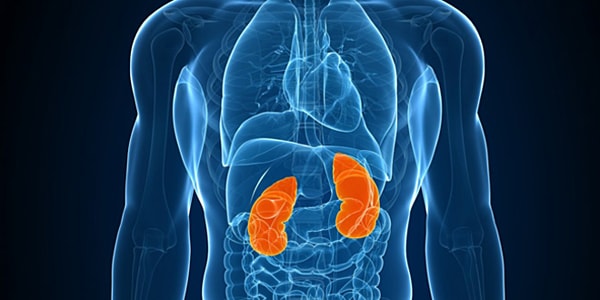7 body parts without which humans can still live
Loss of kidneys, spleen, appendix, colon, gallbladder, stomach, and reproductive organs does not affect life.
The human body has an amazing ability to regenerate. When you donate blood, your body loses about 3.5 trillion red blood cells, but they are quickly replaced. You can even survive if you lose other important organs. Here are 7 such organs:
Kidney
The kidneys filter the blood to maintain water, electrolyte and acid-base balance. This organ acts as a filter, using many processes to retain useful things such as proteins, cells and some nutrients that the body needs. In particular, it removes excess substances from the body through urine.
Most people have two kidneys. Many people have to have their kidneys removed due to genetic conditions, damage from drugs and alcohol, or even infections. With one kidney, you can still survive. Even if you don't have any kidneys, you can still live with the help of dialysis. The life expectancy of a person on dialysis depends on many things, including the type of dialysis, gender, other diseases, and age.
|
If one or even two kidneys are missing, a person still has a chance to live. Photo:Health |
Many studies show that a dialysis patient at the age of 20 can live 16-18 years, while a patient at the age of 60 can only live 5 years.
Pancreas
The spleen is located on the left side of the abdomen, towards the back under the ribs, and is responsible for filtering blood, storing and recycling red blood cells. It also stores white blood cells and platelets to support the immune system when needed.
The spleen is easily injured in traffic accidents and abdominal injuries. However, you can comfortably live without the spleen because when the spleen is removed, the liver plays a replacement role in rebuilding red blood cells and their components. In addition, white blood cells and platelets in the body also help replace the immune function of the spleen.
Appendix
The appendix is a small worm-like structure located at the junction of the large and small intestines. It is now believed that the appendix provides a safe haven for beneficial gut bacteria, allowing them to regenerate when needed.
However, appendicitis is very common with many causes. In some severe cases, the appendix needs to be surgically removed. If detected early, appendectomy will be very quick and simple and the patient can live a completely normal life.
Colon
The colon (also known as the large intestine) is a tube about 2 meters long, whose function is to receive digested and absorbed food from the small intestine, then take in water and prepare feces by clumping it together.
Many cancer patients have part or all of their colon removed. However, most people recover well from surgery, although they may notice changes in bowel habits. People who have had surgery to remove their colon are advised to eat soft foods to help with the healing process.
Reproductive organs
The male reproductive organs are the testicles and the female reproductive organs are the ovaries. When people lose these organs, it is usually due to cancer, while testicle loss can be due to trauma, traffic accidents, etc.
Hysterectomy makes women childless and stops menstrual cycles in premenopausal women. However, women who lose their ovaries do not have a reduced life expectancy. In men, some studies have shown that orchiectomy increases life expectancy.
Gallbladder
The gallbladder is an organ located under the liver in the upper right part of the abdomen, just below the ribs. It stores bile. Bile is normally produced continuously by the liver to help break down fats, but when it is not needed in digestion, it is stored in the gallbladder.
When the intestines detect fat, hormones are released that cause the gallbladder to contract, forcing bile into the intestines to help digest the fats. However, excess cholesterol in the bile can form gallstones and can block the small ducts that move bile around.
When this happens, the patient needs to have their gallbladder removed. Many people with gallstones have no symptoms. In 2015, an Indian woman had 12,000 gallstones removed, a world record. Around 70,000 people in the UK have their gallbladders removed every year.
Stomach
The stomach performs a muscular digestive function by contracting, secreting acid to break down food, then absorbing and excreting it. The stomach is often surgically removed due to injury or cancer. Without the stomach removed, people can still live.
In 2012, a British woman had her stomach removed after drinking a cocktail of liquid nitrogen. Surgeons connected her esophagus directly to her small intestine so she could eat normally.



